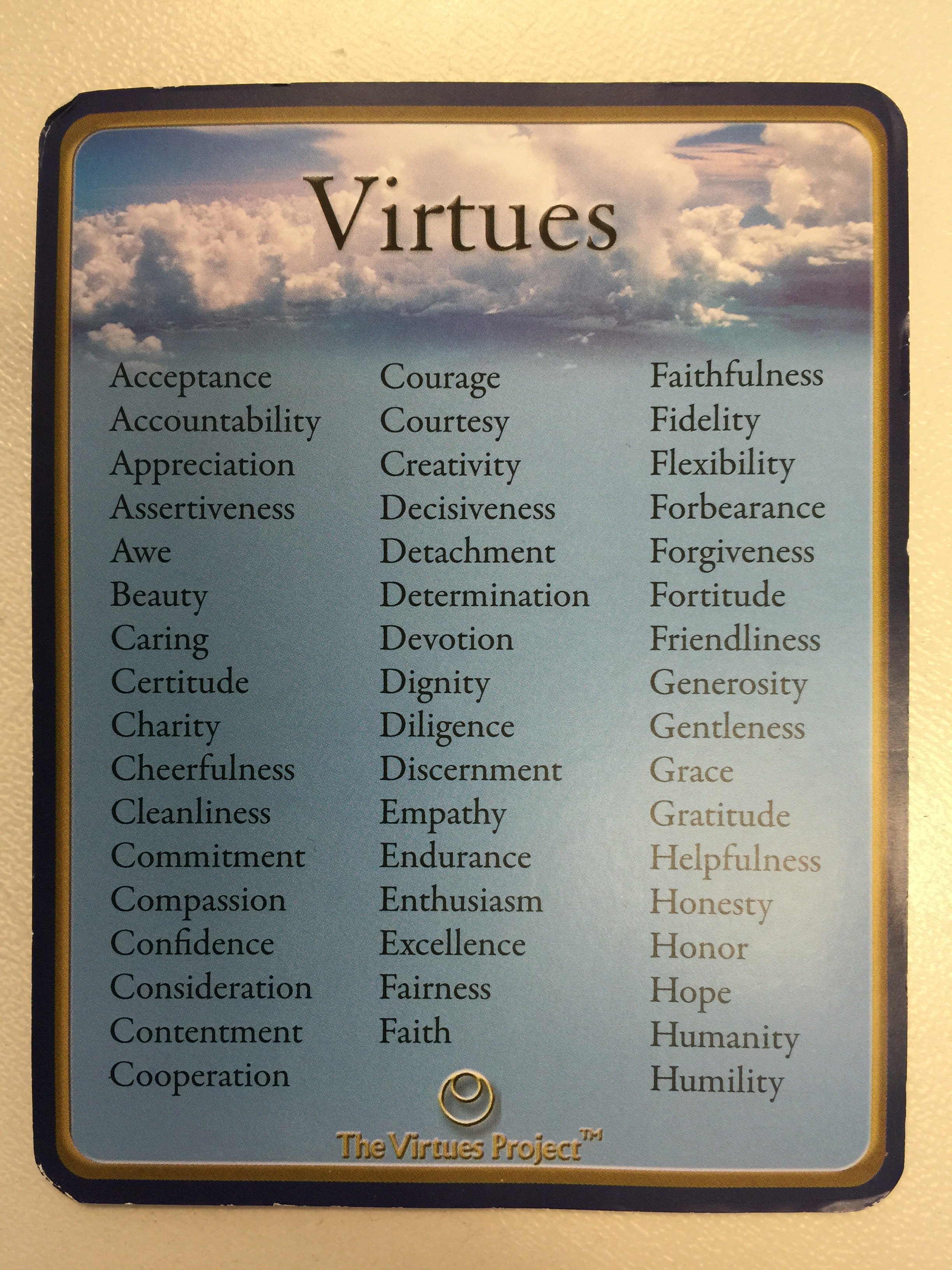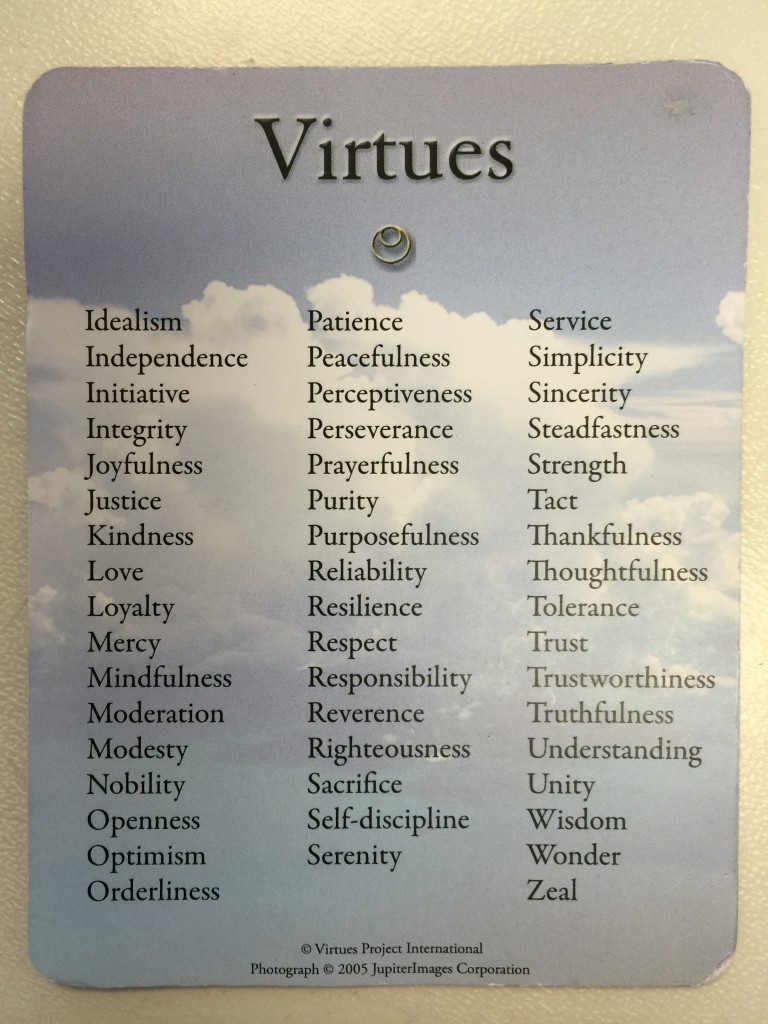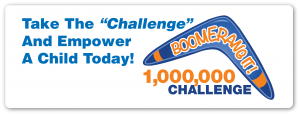#2 of the Five Strategies of The Virtues Project details click here
2. Recognize Teachable Moments
Recognizing the virtues needed in daily challenges helps us to become lifelong learners open to the lessons of character.
What lessons are you learning at this time in your life?
~ ~ ~
Core Values (Character) & Virtues–are they the same thing? Yes, in that they are woven into the same “fabric of character.”
As I recently took a course at the Anne Arundel Community College’s TEACH Institute and Parenting Center–Introduction to the Virtues Project–now, with a better understanding of what the Virtues Project is, and how it aligns with The JNP Project, I am beginning to reference all this as a term I like to call the “fabric of character.” Core values are which The JNP Project’s adventure book series, Jane & Jake’s Adventures to Awesome (and all supporting empowerment tools) focuses on: Truth, Kindness, Harmony, Forgiveness, Giving, Love, Determination, Compassion, Strength, and Character, and The Virtues Project complements all this SEL (Social Emotional Learning) beautifully.
The JNP Project focuses on core values, which together, make up our individual character. Our “Me!” In the White Paper, Virtue Ethics without Character Traits, by Gilbert Harman, Princeton University, 8/18/99, he states, “In one version of virtue ethics, moral virtues are robust character traits possessed by ideally morally virtuous people. The character traits in question are acquired robust habits of perception, motivation and action: habits of perceiving situations in certain ways, habits of being motivated to act in certain ways, and habits of actually acting in those ways. In this view, to specify a moral virtue is to specify the relevant perceptual, motivational, and behavioral habits.” Summing up to character.
In the Character Traits Chart, by Character-in-Action® (image below) notes that “virtue” is one of their listed character traits. Character-in-Action defines the virtue trait as: Virtue = begins by comprehending that there is a clear, absolute standard of right and wrong, and then acts to bring every area of life into conformity to that absolute standard. And, The Virtues Project’s mission is “recognizing the gifts within.”
In conclusion, I wanted to state that our character, the essence of who we believe we are, in which we draw our strengths and values from (our own inner-awesome super-powers), is in essence our fabric of character–made up of core values and virtues. That is why it is so important to me to take note of our virtues and be advised by our virtues facilitators as we continue to create content for JNP.
#2 of the Five Strategies of The Virtues Project details click here
2. Recognize Teachable Moments
Recognizing the virtues needed in daily challenges helps us to become lifelong learners open to the lessons of character.
What lessons are you learning at this time in your life?

NOTE: This series is written as a GUEST BLOG by our own JNP Advisory Committee Member, Ms. Biteena Frazier — now, our JNP Ambassador to the Middle East. She is a Master Solution-Focused Practitioner, PCI Certified Parent Coach and Virtues Project Facilitator. She has left the USA to pursue an interesting opportunity to help develop a behavior management and character development program for a new international school in the Middle East.
 RECOGNIZE TEACHABLE MOMENTS
RECOGNIZE TEACHABLE MOMENTS
Practicing this strategy creates a shift in how we approach challenging situations. Families can get knotted up in problems, focusing on negative events, patterns or even personalities. Rather than label events or behaviors as negative, it is much more empowering when parents bring their attention to the lessons and skills that need to be learned. Recognizing Teachable Moments is really a paradigm shift in how we think: “problems” become opportunities for growth. Rather than shaming ourselves and looking to blame others, when things go pear-shaped we can embrace the experience by asking, “What do I need to learn here? What is the seed of character that needs to be watered in my child or in myself to better handle this situation?”
We are practicing this strategy when we give a Virtues correction. Instead of shaming a child for doing something wrong, a parent lets the child know what behavior they expect to see. This requires always coming back to the idea that a child needs to know what you want, not what you don’t want. So often I hear parents telling children things like, “Don’t be rude!” “Stop playing rough!” “Don’t bother me right now!” Life with children is full of Teachable Moments. We can get angry and tell them off, or we can use the opportunity to help them grow a positive aspect of their character: “It’s important to be courteous.” “Show gentleness when you play with your little brother!” “Please be respectful, I’m speaking with the attendant.” There are countless opportunities to teach children how to show their best self. We can seize these moments to help them grow, or we can cut them down for disappointing us. How we respond (or react) will influence the child’s sense of who they are and who they might become. When we respond in the spirit of Recognizing Teachable Moments, we essentially let go of fear and parent from a position of love, trusting life as a never-ending chain of opportunities to grow the gifts within.
As long as there is life, there are lessons to be learned. Recognizing Teachable Moments means we practice more Acceptance of what is, not judging events and people in our lives as “negative” but coming from a place of greater Understanding that all we encounter and experience has been placed in our path for our growth and the positive development of our character.
For details of The Virtues Project go to their website at www.virtuesproject.com.
Below is the basic list of 100 virtues:

 * Ms. Biteena Frazier, is a School Counselor, and will be training staff in The Five Strategies® of The Virtues Project® at a school in the middle-east, with children from over 40 countries around the globe! She will be involved with The JNP Project as our Ambassador to the Middle-East, and will be Skyping with me regularly. As Biteena grows into her role, I will share more with you on the positive learning and experiences she is having overseas.
* Ms. Biteena Frazier, is a School Counselor, and will be training staff in The Five Strategies® of The Virtues Project® at a school in the middle-east, with children from over 40 countries around the globe! She will be involved with The JNP Project as our Ambassador to the Middle-East, and will be Skyping with me regularly. As Biteena grows into her role, I will share more with you on the positive learning and experiences she is having overseas.
Join Jane, Jake and all their friends on the adventures to discover your inner awesome, together!
~ ~ ~
Note: This Blog is a chronological diary of a start-up-company—The JNP Project’s Journey—reading it from the start, will broaden your understanding of the path we are on, together, and hopefully, positively influence you in some way!
FYI Tip: To get the overall understanding of Character Traits & Virtues, and the Language of Virtues, read all of the 8 blogs in this Founder’s Blog series.






No comments yet.